Mohanji’s Talk in Belgrade
on May 20, 2017 (Satsang with Mohanji and Umashankar)

On the Tradition of Masters who are married and settled: one person asked George Bernard Shaw, “Should I get married?” He replied, “Definitely. You should get married. If you’re very lucky, you’ll have a good life. If not, you’ll become a philosopher.”
To start with, I would like to tell you that I’m a kind of melting pot of various Traditions. But please understand that in India, all these Traditions are interconnected. Like for example, there are a lot of rivers but all these rivers are connected internally, underground. So if you take one Master, such as Babaji – Babaji is in every Tradition. You would not see one Tradition where Babaji’s not. So which Tradition does Babaji belong to? Difficult to say, because all the Traditions are connected. And why are there various Traditions? Because there are various types of people. Everybody cannot understand or follow every Tradition. So there are a variety of Traditions, variety of Masters, paths, all reaching the same destination eventually.
Encounter with Babaji
I’ll brief you about my encounter with Babaji. I think maybe many of you have read my blog, Babaji Beyond Definitions (part 2,3) which is translated into various languages. I came to know about this man who is deeply connected to Babaji, called Babaji Boy – nobody knows his name, really – everybody calls him Babaji Boy. And he is always in meditation. If he sits for meditation he’ll get up only after seven days. So I wanted to meet him because I had heard about him and about his deep meditations. So I was curious. I was just like any of you. I was seeking. I was trying to understand what is true spirituality. So I wanted to meet this person. The person who is associated with him said, “Mohanji, don’t waste your time. You know, if you go there, he may not even look at you. So why are you wasting your time?” I said, “I just want to see him. It’s a curiosity.” Then he said, “Ok, no problem.” He gave me the address. This guy is from Malaysia but he was visiting India. I had actually landed that morning from abroad and was all too eager to meet him. I went to him and he opened the door and said, “I was waiting for you.” I was surprised. Did he know me? Because there was no introduction ever and he’s constantly in meditation. There’s nothing you can tell him anyway.
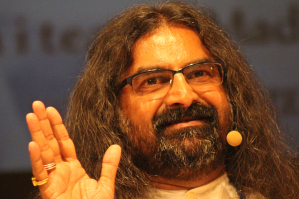
Please remember this was in early in the year 2000. I was not actually praying to Babaji or connecting to Babaji. I was actually an ordinary seeker in that context. And he opened the door and said, “I was waiting for you.” And then he said, “Babaji told me yesterday you’re coming and I have something to tell you.” I was eager to hear what he wanted to tell me. Then he said, “You know your problem? Your mind is all over.” I said, “Of course, I know that.” This doesn’t need Babaji to tell me. Then I said, “What do I do with it?” “Babaji tells you that the technique is to split your mind into two. Look at one part of your mind with the other. When one dissolves, the other will dissolve.” I said, “Amazing.” A technique is given – just like that, casually. That was the beginning.
I promise you, I did not understand the story fully. I understood the words but I did not understand the meaning. How do you split your mind into two? First of all, you cannot catch the mind to break it into two. Then he said, “Come inside. Let’s meditate.” That was my biggest fear because he wakes up after seven days. I cannot sit for 15 minutes. [Laughter] I went inside because I could not say no, and he immediately sat down, closed his eyes – finished! I’m sitting down looking at him. I’m thinking about all the things. I’m listening to the sounds outside. Everything was happening in my head, and I didn’t know what to do. I sat for thirty minutes maximum. Then I prostrated at his feet. He was already gone. I prostrated at his feet and left. But that gave me one answer – that Babaji knows me and Babaji’s talking to me. Maybe he couldn’t talk to me directly but I got the message.
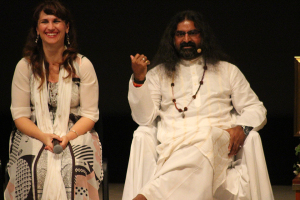
Second part of the story: this is almost 10 days later. There was a function. They were honoring a few people and they wanted to honor me for my charity activities. And I was really not too keen to get honored, but I was told that Babaji Boy’s coming there. So I thought, “Okay, if I go for this function, I can probably spend some time with him. And I was hoping that he will be awake, not in meditation, so that I can ask him something. I reached there. My first question was, “Where is Babaji Boy?” They said, “Behind the stage, there is a room. He’s sitting there.” I went into the room and as I expected, he’s sitting like this [shows meditation pose, eyes closed], cross legged. I didn’t know what to do so I sat in front of him. Suddenly, he opened his eyes, looked at me, nodded and closed his eyes.
That moment – you must have experienced when you pour soda water in a glass, you see how the bubbles come? – something like that started happening inside. Quite a lot of bubbles were happening from every cell of my body. I had to sit down in front of him, and there was only me and him. These bubbles were coming and I was losing my awareness. I was kind of getting blurred and blurred and I was losing the consciousness of the environment. Something was happening inside. I had not started splitting my mind at that point in time, because I did not know how. But at one side of my mind I was knowing that the function was happening and they would be calling me to honor me. On the other side, I knew I could not move. So this was kind of a very difficult situation. “What if they call my name? – one side of the mind is working. And how will I get up and go?” And the second side is, “I don’t want to leave this.” So this was going on and in between I open my eyes and look at him and his eyes are closed, so nothing can happen. So I was just there, waiting for something to happen.
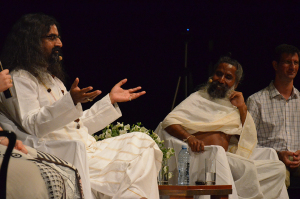
Inside, I was crying, “Somebody help me.” There were a few people on the stage, and there was one Saint on the stage. Suddenly, this Saint came inside. He walked straight in. He just brushed my head and he left. He went back. This all started subsiding, and I could get up. Babaji Boy was still in the same state. Nothing had happened. I came out and exactly at that point in time my name was called. They were explaining what I did and all the stuff and said please come on stage. At that point in time I came on stage, I received the award, and then they said, “Would you like to speak some words?” By that time I was already occupied in silence. I said, “No speech, thank you.” I just left. Then I went back to Babaji Boy. When I entered the room, he was standing up. His eyes were closed but he was doing some kind of yoga posture. I was not too interested to see that, because if he had asked me to do the same posture I’d have needed an ambulance to go home. His one leg was up and one down and his hands were elsewhere. If I did that I’d be totally dislocated. (If I remember right, at that time I didn’t have much insurance coverage. Especially for disability.) And then he looked at me. He said, “It’s over – go!” He hardly speaks you know, so these were very precious words. He said go, okay that’s it. That itself is good. That means he acknowledged my presence and he’s allowing me to go.
Ten days later, he was going to the Himalayas to be with Babaji. I could not meet him in between because it is difficult to meet him. All the time he is in meditation. I wanted to meet him but there was no chance. The evening he was going, I got a call from him. This was a great surprise for me. He said, “I want to meet you. I’m going, I want to meet you. I’m coming to your house.” I thought, “This is amazing.”
Then I said, “Babaji Boy, can you come for dinner? Let’s have dinner together.” He said, “Yes, I’ll come for dinner.” I thought, “My God, this is like Babaji himself coming.” I was so eager to see him. He came to my home. He said, “I want to talk to you alone.” I said, “Sure.” We were in one room. Then he said, “I’m going back to Malaysia.” I said, “I thought you’re going to the Himalayas to meet Babaji.” He replied, “Yes, Babaji scolded me. He asked me, ‘Do you think I’m sitting in the Himalayas? Then who is sitting with you? You have to come to the Himalayas to see me? Are you crazy? Go back home.’ So,I’m going back.” He uses one card, one picture of Babaji. That is his passport or his gateway to Babaji. Babaji told him, “Give this to Mohanji. You don’t need it any more. Give this to Mohanji. I will be talking to him.”
How Babaji started talking to me and how he gave me whatever I have now, this is all written so I don’t want to elaborate, especially since time is short.
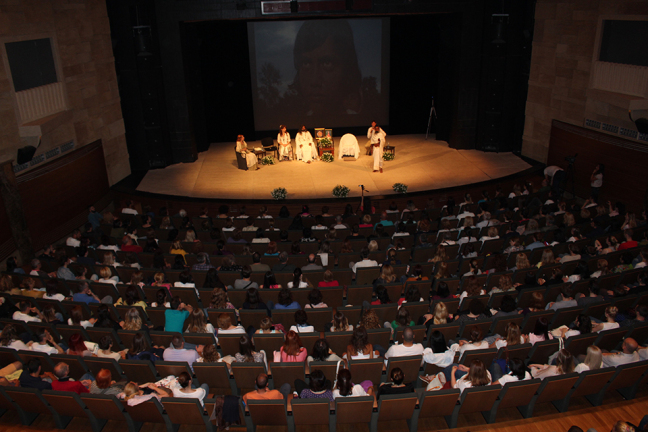
A message from Babaji’s Guru, Bhoganathar
Last year, one of my followers, a chartered accountant, visited a Master. This Master is deeply connected to the Siddha Tradition, which Babaji is part of. He’s 70 plus years old. When this Master saw this person, he asked, “Who’s your Guru?” He said, “Mohanji.” “Ah, I was waiting to talk to him. I have something to tell him.” And he spoke about me and even about Mila, my daughter.
Then the Master said that Babaji’s Guru, Bhoganathar, had been asking him to contact me. He said, “Bhoganathar wants to talk to him. I must speak to Mohanji.” Normally, nobody has my number. My phone number is not available. So this chartered accountant contacted our people and said this person is asking for Mohanji’s phone number, can we give it? I said, “Give it to this person. It’s fine.”
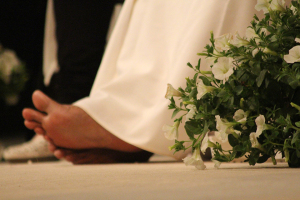
He calls me and says, “I have important information for you. Bhoganathar wants to get back to you and remind you of your days with him.” Then he gave me a mantra, which is a particular mantra. This is for me to connect to Bhoganathar. He said, “Forty-one days you should chant this. After that, Bhoganathar will start talking to you.” I could not sit down for 41 days, not even for 41 hours. So till now it has not happened. I have kept the mantra. I do have intention to sit down in some corner and chant, but schedules are not permitting so far. And then this Master told me we must meet, I was also with you in that life. Of course, I could not get much time to meet him, but then I met him in December last year. We had a very, very detailed discussion.
One question I asked him: “Tell me whether my understanding is true. Bhoganathar was clear that Babaji is an Avatar of Lord Muruga, son of Shiva. Was he clear?” He said, “Yes, you’re absolutely right.” He was an Avatar, and it was just like Sandipani Maharshi knowing that Lord Krishna was an Avatar. There was nothing to teach him – he already knew everything. But to keep the Tradition going, they attended with the Gurus and the normal path of learning. But they were all enlightened by birth. They were all Avatars. Just like Adi Shankara.
When Adi Shankara at the age of eight, went to Govindapada, Govindapada asked him, “Who are you?” Then he replied, “Mano buddhyahankara chittani naham, Na cha shrotra jihve, na cha ghrana netre, Na cha vyoma bhumirna tejo na vayuhu, Chidananda rupah shivoham shivoham.” “I’m not the mind. I’m not the body. I’m not the organs of action. I’m not the organs of perception. I am Shiva.” If you can talk like this at the age of eight, what will you learn from anybody?
A communion with Babaji
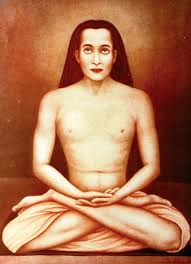
So later on of course, one incident I remember was when I was having a communion with Babaji. I was so expanded. When Babaji speaks to you, there is one advantage. You cannot even move your finger. Forget about your mind wandering. Your mind itself is dissolved. You can’t even move your finger. It will be like just reception. That’s it. So at one point in time I was feeling overwhelming love for everything. Just love. I couldn’t even contain the love – too much love. I told Babaji, “Babaji, you know something, I really love you.” Babaji said: “Cut that nonsense.” Later on I understood various dimensions of Babaji, just like I said.
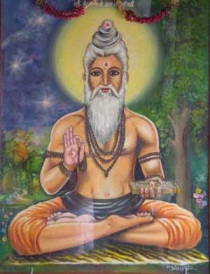
When Sage Bhoganathar, the great Siddha, wanted to make the idol of Lord Muruga in the temple of Palani, Babaji was his model. Lord Muruga is called Kumara. He’s not growing beyond sixteen. He arrested his growth at sixteen. And that you can see in the Nath Tradition very distinctly, which I’ll explain later. Bhoganathar combined the 9 poisons in a particular order, and created the idol of Lord Muruga based on Babaji because he is the Avatar. There was no other model needed to create Muruga. The 9 poisons were mixed together in such a way to cure every disease – all diseases. Even now, if you go to the temple of Palani, they do abhisheka. They pour milk over the idol and they give you the milk. That is supposed to take away all the toxins from the system. This is one example.
Nath Tradition
Nath Tradition is one of the most powerful Traditions of India. As I said earlier, there is a connection between all Traditions, through the underground. Outside it all looks like different rivers, but inside it’s the same water. Nath Tradition has its origin from Lord Krishna. When Lord Krishna was leaving his body, knowing that after leaving his body his teachings could get destroyed, he told Lord Dattatreya to codify the Nath Tradition. He asked the nine Narayanas, which are actually his own sequential parts, to come to Earth and attain the bodies of Navanath – nine Nath Gurus. And in that Tradition, Adinath is Lord Shiva, and Balaknath is Babaji. When I met Avadhoota Nadananda . . . I think some of you have read the Autobiography of an Avadhoota – a very, very powerful autobiography. If you haven’t read you should read it. A man’s quest from atheism – not believing in God – to the Pontiff of Gyanganj. Great journey. That book is available in Serbian language too. You must read it.
Our job is to empower you
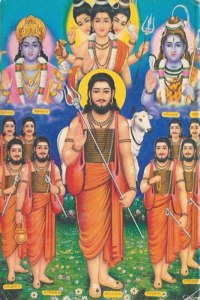
When I met Avadhoota Nadananda, he asked me one question. “Why did you come here? What do you want from me?” I said, “I just wanted your blessings. I came to see you.” I never go to any Master requesting something because that’s the silliest thing you can do. If you go to a Master and ask for something, he may give it, but if you’re supposed to get a Mercedes why do you settle for a cheap car? Might as well keep the mouth shut and receive. Every true Master understands who is coming in front of them and knows what to give. If a Master doesn’t know what to give, that means he is operating at the same level as the person who has come. I have tested this.
Actually, I’m very, very naughty with this kind of stuff. I went testing one Master – an 80-year-old man. He has his own helicopter. He’s so busy he flies. To meet him is a big problem. One of the people said you must meet my Guru and he took me. I said I will come, I will not tell who I am. And I was in jeans and t-shirt and bandana and all that kind of stuff. So no way can they think I’m somewhere connected to spirituality. They will think probably I’m a musician or somebody crazy.
He was sitting down. A lot of people were sitting. I sneaked in and sat in one corner. He was talking to everybody. Suddenly he looked at me. He asked, “Who are you?” I said, “I just came for your blessings.” Then he started talking. Again, he looked at me. “Who are you?” Something was bothering him. He was not leaving me. Then he held my hand for some time. “Ah, no mind. You have arrived. Why are you sitting here? What do you want from me?” What I’m saying is, if you go to any Master, actually you don’t need to ask anything. They understand. They give to you.
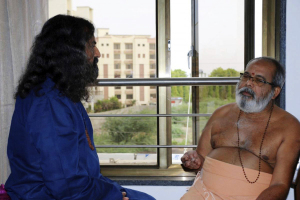
So with Avadhoota Nadananda, I said, “I need nothing, I just need your blessings.” Then he said, “I will get the information.” And Gyanganj especially, is a place where you cannot go. It’s actually a location in Tibet, but even if you ask the monks in Tibet they will say there is nothing like that. But there is a place where great Masters are meditating and that place belongs to numerous Masters who have been on Earth but relocated, kind of, after death, after attaining samadhi.
Various Masters are existing in that realm and that is the causal layer of the Earth. Causal layer is where everything starts from, that is where all the seeds are sitting, all the impressions. So this is where whatever Traditions happening in this world have a root, there in Gyanganj. And Nadananda was the Pontiff of Gyanganj.
I didn’t want to express too much about what I do, to Nadananda, because he’s a great Master. He’s a Pontiff. I just prostrated at his feet and took his blessings. And then he said, “I will get information.”
The next day, he suddenly comes into the room and says, “I want to honor you. Babaji told me, ‘We sent him there.’ ” So that Babaji is Mahatapa. He’s known as Mahatapa in the Avadhoota Tradition. In Gyanganj, Babaji is known as Mahatapa. So we know Balaknath, Mahatapa, Lord Muruga are all one person. Different costumes or different manifestations, but it’s all same. I was hearing about Gyanganj for the first time. Then it went on – like that it went. He honored me, etc. And then it was in June last year that I had an invitation to inaugurate a restaurant in Shirdi.
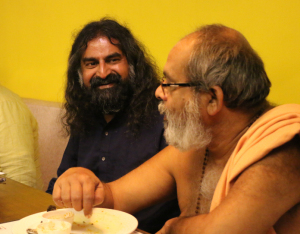
I was to be going there and Nadananda was also invited, so we were together. I call Nadananda as “Guruji.” So Guruji calls me and says, “Mohanji, I want some time alone with you. Can you arrange it?” I said, “Guruji, definitely, we’ll have time together.” We had breakfast. Then Guruji said, “Let’s go.” He said nobody was to come along with us. We two were walking. And remember, Guruji has sixth stage cancer. He’s suffering from cancer. He was walking. I was walking. And then while we were walking he was telling me some things casually. But you know what? Whenever a Master speaks I do not ask why he is speaking this, or I do not think. I just listen.
He was telling me, “Mohanji, you know something? When Baba came to this place there were only some snakes and foxes. Nothing was there. Now you look at all these buildings, all these restaurants, all these hotels, brimming with business. Millions of people are coming here. Remember how many people are eating food in his name. When Baba was here, he was like a wandering beggar. He was visiting houses for food and people were feeding him. He lived a poor man’s life. Today the whole place is brimming with life, activity, money.” He said, “You know, this is the way we live also. Tomorrow, a lot of people will eat food in our name.” I said, “Guruji, but it’s okay. Why should we worry about it?” “No, no, I’m just telling you so that you know.” “Ok.”
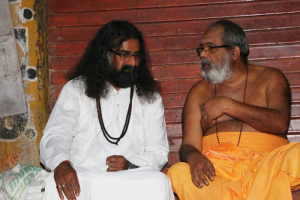
I never ask any Master where we are going. I just walk with them. So I didn’t ask Guruji where we were going, and we were walking. And suddenly he said, “Mohanji, we’ll not go into the temple. Those who have to see us will come outside.” I said, “Ok.” But I realized something is going on. Some ritual is happening, even though he was not telling me. When we were walking around, we went around the temple, where Shirdi Sai Baba’s body is. Then we went to the water well where Baba used to draw water a hundred years ago. He used to draw water and use it to water the garden. We went there and now that place is closed. You cannot actually go to the water well. When we reached close to it, a security guard came and opened the gate and said, “You’re welcome to go in.” I was surprised. They don’t even know us. They allowed us to enter.
Guruji said, “Look into the well. Can you see your face?” Then I looked and I could see my face. I said, “Of course. In the water you can see your reflection.” I said, “I can see my face.” “Ok, job done. Come.” We walked and then we sat down in one place. And Guruji was saying, “Mohanji, your followers and my followers and all these people – we are thinking we are doing a lot of charity. But what charity is it? There’s always doership. (Means I’m doing something for other people.) That means even there, there is a bit of ego, you know, I like to give to you. You remain poor always so I can keep giving to you. You know, this kind of ego. In fact, if we are delivering something to somebody, there is no somebody. There’s nobody outside. You are actually giving to yourself. There’s nobody outside of you. If that attitude doesn’t happen, charity is not real.”
I told Guruji, “Guruji, I’m telling this to the world all the time. Whenever you do charity, don’t have doership. Don’t think you are doing. You should always have gratitude.” I said, “This I teach wherever I go.” He said, “Ok.” Suddenly he got up and said, “Get up. He’s waiting.” I had no clue who was waiting. We got up and came around the Shiva temple on the other side of the samadhi of Baba. There was one man standing there – very, very thin, very lean, with the hair tied on top like Swamiji,* much more, and just wearing one cloth, nothing much. He looked like a wandering monk, very, very lean – dark, lean, thin.
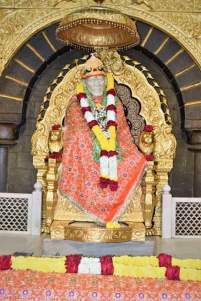
I did not carry any money, so Guruji took some money from his cloth, gave it to me and said, “Give it to him.” I went, he looked at me and kind of nodded his head. I gave the money, he received it and then Guruji said, “Let’s go.” We walked. This saint looked around 30, the maximum you can say below 40. He looked young. Then later on, while walking, Guruji said, “You know who this was? This is the Guru of Bhagavan Nityananda, Bhruguram Paramahamsa.” If you read the book ‘Autobiography of an Avadhoota’, you will read this name. He’s the Guru of Bhagavan Nityananda. “He’s the one who took me to Gyanganj. Now you have given him dakshina – the donation – you are directly connected to Gyanganj. My job is over.” He said, “When Shri Ramakrishna Paramahamsa empowered Vivekananda, he did not create a saint, he said he created a lion who could roar in the world.” He said, “We are empowering you to roar in the world.” I had no clue how to roar but okay. But one thing was clear about all these Masters, like Bhruguram Paramahamsa who had left his body well before. His Guru had been Keenaram Paramahamsa, and Keenaram Paramahamsa empowered Guruji with the siddhis of dhoora shravan . . . You can hear from a distance, you can see things at a distance, all these things.
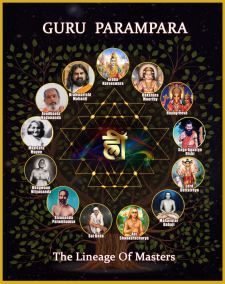
So all these Masters are working simultaneously. Tradition is working! You know, when you become part of the Tradition, there’s nothing for you to do. He told me, “Your job was to come here. Our job is to empower you. Now you don’t have to walk.” This is the promise of the Tradition. Please understand. All the Traditions – including what Swamiji was talking about – the Tradition is empowering you. Even the Buddha faced this thing. Buddha was meditating for a long time and nothing was happening. Finally he got fed up. He said, “What am I doing?” Activity was not giving the realization. Then he said, “Enough is enough.” He dropped everything. Then what happened? Enlightenment happened. What he felt when he was so expanded and when the leaf fell from the tree : “It fell through me.” That means you are beyond your size, you have expanded so much, everything is inside. So your activity can take you only to a certain level. Beyond that, it’s Beingness that works. You have to just Be. Tradition helps you. Tradition empowers you. It takes you forward.
Traditions are interconnected. Why Traditions are different outside is because you have a different orientation. Each person has a different orientation. We talk about this path of devotion, path of knowledge, path of activity and path of dissolution. All these paths are suitable for somebody. So every path has value. Every Master has value. Every Master is delivering something unique. Never compare. All Masters are valuable. Every Master is sent. And who is the right Master for you? As per your orientation, what you can do and who guides you, that’s the right one for you. [Holds up a glass of water.] What is the strength of this glass? The space. This is exactly the strength of a disciple. If you are empty, you are eligible. If you’re filled with concepts, filled with fears, filled with ideas, filled with prejudices, you have no space for any Master to give you anything. As I said, I had no clue what to ask any Master. This was my biggest strength, because if I had asked for something small I would have gotten it probably – some siddhis, for example. Actually this is one of the things which Babaji told me in my second communion.
Second communion with Babaji
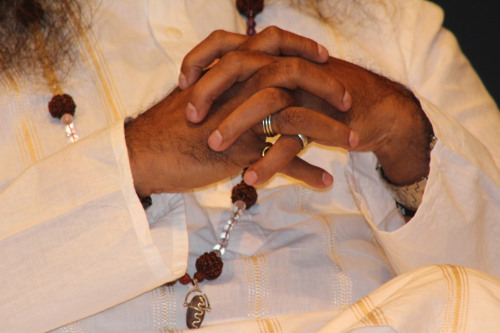
Those days I was practicing. From 3am to 8am I used to meditate. I was working as well. Those days when I looked at a person I could see through the person, all the past lives, future lives. Everything I could see. And I had no idea what to do with this information. Should I tell this person? A couple of times I tried telling and it became a disaster. I was a general manager of a company. They started asking, “Are you some kind of an astrologer? What are you talking about?” Then I had to explain too much and I thought this is not good – better keep quiet. Then when I had the second communion with Babaji, Babaji said, “Look here, you can actually tell the future of everybody and sit in one corner and everybody will come to hear their future out of insecurity. Is this what you want to do or would you like to take people to Liberation?” I said, “Definitely I would like to take people to Liberation if I can.” Then he said, “Tathaastu. [So be it.] Drop the siddhis. You don’t need them. Drop them.” I have never checked if I have any powers afterwards, because I realize having powers is easy but to have the maturity to maintain them is very difficult. Sometimes you get carried away – oh, I know all these things so I can probably do something. That is a trap. The moment you start using any power, it becomes your trap. People may appreciate you because you’re extraordinary but that again is a trap. If you’re walking the path of Liberation, everything is a trap. So might as well be empty – nothing. And the highest feeling you get when you reach a certain stage is that you know nothing. Then you are home. Then you are fine. If you feel you know something, mind is involved. If you feel you know nothing – empty – good enough, you are fine.
Be empty, then Master fills in
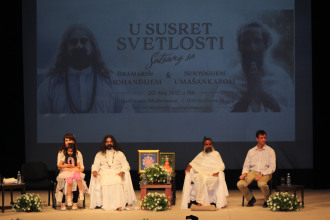
Please remember, only when you have ownership of activity you have karma. If you do not have ownership of activity . . . Like Lord Krishna says, “If you surrender your action and the results of action to me, I release you from the karmic binding.” Same thing. Like Swamiji* was explaining – what is the state of emptiness? It’s a state where TPS is very low – thoughts per second is almost nil. Empty state is that you are not thinking when you are sitting in front of the Master. You’re just allowing the Master to operate through you. And also, never judge somebody whose frequency is beyond your imagination. Never criticize. Never try to measure an ocean with an ounce glass. If you don’t do these mistakes, you don’t need to do anything else. The Master fills in. Or that is the emptiness – as I said the strength of the glass is in the space. If the space is not there, then what can a Master give you? So, as a fundamental principle, all you need – your whole eligibility – is about being empty. And sometimes you have to unlearn a lot of things for that, because we have collected so much data into the system. Like Swamiji was explaining, the computer is about to crash, so what you need to do is to throw away a lot of stuff, create some space and allow Masters to work through you.
That’s all you need. And as I said, in my experience, when I was wandering, I was searching, various times I felt, what am I doing? There’s no meaning in action. There’s nothing to do. Just be available. Just be you. Then the Master takes care of you. You don’t need to do anything. This was the truth which kept coming back to me.
Encounter with a Guru at Kumbh Mela
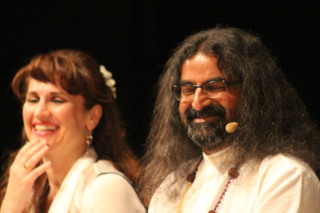
We’ll just conclude it. You know, she [Devi] comes with me to certain programs, especially like Kumbh Mela, etc., and puts me in the soup. One time, it was in 2010 I believe, we were standing outside. She was with me. And we saw one saint and he resembled Osho very much. I went to him and said, “You look like Osho.” And he started laughing. With his beard and everything, he was looking like Osho and I couldn’t resist it. Then he said, “I came with my Guru. My Guru is here in the neighborhood.” “Oh, you have a Guru.” Then he said, “He’s a very great Master. He’s one of the key Masters of the Kumbh Melas. So if you like to meet him, I’ll take you.” I said, “Definitely, I’d like to.” So we went, the both of us, and you know, I normally don’t open my mouth in front of Gurus. She talks. [Laughter] So when we went, he was lying down – he’s a 90-year-old man – lying down on a bed. And this ‘Osho’ took us straight to him and asked us to sit next to him. When we sat down, he sat up. He asked, “Who are you?” I didn’t say anything. I just bowed down [shows hands in namaste]. She said, “He teaches meditation.” [Laughter]
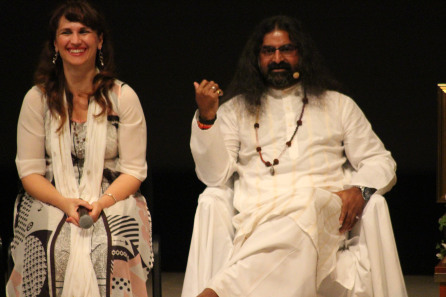
He was looking at me. “What meditation are you teaching?” I said, “Nothing.” Then he started asking me questions, one by one, like a bullet. He was testing me, whether I know something. And in Hindi – my quota of Hindi is very limited. I answered in Hindi. He asked six questions. I answered six questions. Then he smiled, then he tapped me and said, “Good, you have arrived. Eat from my ashram. Go. Take them. Give them food.” Then I told her, “Never, ever, say things like this in front of any Gurus, because we have no clue what they’re going to ask now.” And she was sitting quiet. She was enjoying this game. The moral of the story is never put your head in a lion’s den. One question he asked, I remember, was: what is your purpose? Not exactly what is the purpose of life – he asked me, “In spirituality what is your benchmark? What have you set for yourself?
I said, “My presence should be more powerful than my teaching. If that is not happening, I’m not worth it. My energy and presence should be powerful enough to transform, rather than my teachings.” Then the last question in Hindi that he asked was: “So what would you like to teach the world?” “Nothing,” I said. That he liked. He laughed, actually. He said, “This is the right path.” He said, “Don’t think that people need to know something. They already know. All you have to do is, with just your emptiness, allow them to reveal themselves.”
* “Swamiji” refers to Sunyogi Umasankar, who spoke earlier at this event.
Transcribed by Natesh Ramsell

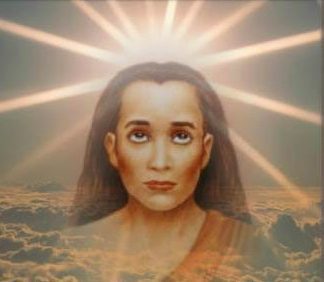
2 thoughts on “Babaji Is in Every Tradition”
Dear mohanji .
Thank you for sharing these experiences and insights to life.
Inspiring yet comforting.
I take so.much from your sharing
Thank you once again.
Blessings always be upon you.
Pingback: Babađi je u svakoj tradiciji -